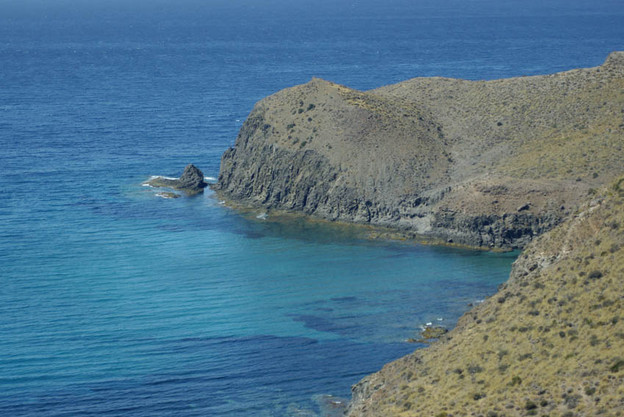Toward and through the 'natural'
Rivera's and Russo's elsewheres ...

Elena Rivera, On the Nature of Position and Tone (Fields Press, 2012), 35 pp.; Linda Russo, picturing everything closer visible (Projective Industries, 2013), 15 pp.—Rivera and Russo unearth and re-investigate the culture/nature problem in distinct but similar ways. And this has to do with the ways that nature is constructed in these two chapbooks. In both, the natural comes into existence as an object of knowledge (however defined) only in relation to artifice—first and foremost, to their writings but also to their places of residence — and to the artificial structures of culture. Rivera, who lives in New York City, wrote her chapbook as a kind of “sensual response” to her one-month residency at Djerassi, a multi-disciplinary artist commune southeast of San Francisco. Russo lives in rural Washington State and has “returned” to the things themselves outside her home (“things as they are/almost lifting in my ear”), a return that is a response to “the ones who wrecked reason for [her]/in bewildering threads.” Both chapbooks record the authors’ troubled reactions to the intrusions of the outside world into their imagined, perhaps fantasized, bubbles of would-be serene contemplations of nature. Truth to tell—and both do—these intrusions are, in fact, parts of the very structures of the natural. Rivera’s sabbatical begins promisingly enough: “In a field of blooming thistle/ a sensual response/ Give me oblivion/ as of emotion.” Rivera, however, wants to go beyond, or withdraw before, desire, a kind of Zen state she cannot achieve: “The Pacific can’t wash that sensual response.” Instead, she finds herself “in the wishing circle, going round and round.” Russo’s chapbook opens up with the immediate desire to escape:” the streets are paralyzed.” For Rivera, “culture” intrudes in the form of a video ironically mocking what the artist commune idealizes, community: “In the video trains were coming together.” Akin to Rivera’s desire for a kind of phenomenological reduction of herself, Russo is “afraid of [her] overempowerment/ unleashing realizations in the leaves/ stabbing points on a powerful map.” Moreover, both find themselves at partisan impasses, by which I mean the way impasse functions in both texts as division, as “Already on Different Sides” (the title of Part II of Rivera’s chapbook). Insofar as the artist residency models division (writers stay in one house, musicians, dancers and sculptors reside in what is affectionately called The Barn), Rivera is not entirely surprised to find divisions surface as imposed structures of rhythm: “My rhythms were off/ No longer contained in syllables,/ and now I’m all over/ this wild landscape/ rhythm as in: shake your booty/ Or as structured by mealtimes.” Rivera finds herself riven by precisely that from which she sought respite: “I was reminiscing/ and the emotion caught me/ What am I without my memory/ My family.” Russo also desires an unobtrusive stance before the natural, even, per phenomenology, the avoidance of figures of speech, the rhetorical equivalent of emotion: “I’m not trying to transport anything…” However, later in the poem, Russo admits that she’s “fixing metaphors by making them earthy// I’m admittedly skyward.” For Russo, here on the last page of the poem, she must let go, for only by not trying to connect via language can she connect: “when you let things unhinge/ you’re not sitting sadly with reddening leaves// quivering feeling separate.” Rivera, however, is not as willing to cede the bridge-cum-chasm of language: “The ‘sensual response’/ is a possible reality/Perhaps it hinges/ on a ballad…” As the next, and final lines of the chapbook reveal, however, Rivera understands the cost of surrendering the mind: “(even here where I want to shut it,/ that initial fearful grasping for stupor)/ and patience/ ‘just’.” To hinge or unhinge—that remains the perennial question unsettled by these two inquiries into all that that is not “us.”
Hunches, hedges, etc.